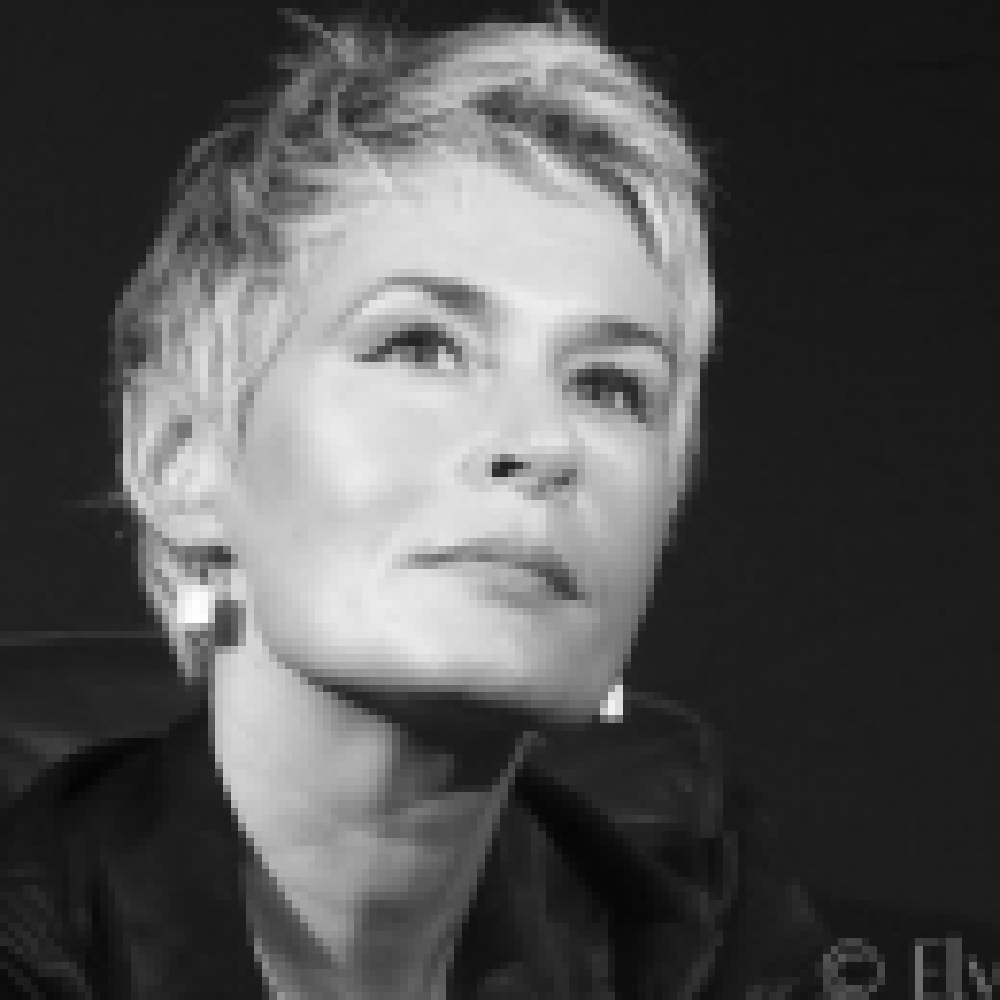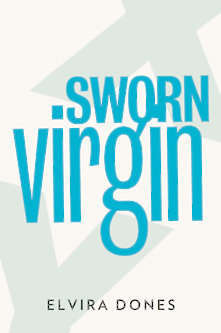
Elvira Dones

Sworn Virgin, to me it is a story about beauty and its wounds; about rebellion and its price; about the duality between soul and flesh. I first heard about the sworn virgins in northern Albania back when I was at school. I used to imagine their life, and try and understand why they would take such an extreme decision: to dress like men, take a vow of chastity and become men socially not in the name of sex but in that of its absence. It was a little known phenomenon in Albania in those days, and it was complicated. It took years for me to get round to writing about them. I wrote other novels, but the unique story of the sworn virgins stayed with me and held me in its sway.
Please tell us about the character of Hana Doda.
Hana is a brilliant young woman - nuanced, poetic and modern in spirit but born and raised in the mountains and valleys that bear the fiercely proud name of the Accursed Mountains. Hana is an amalgam of many different young women: those I grew up with, and other Albanian women I have met in every corner of the earth over the years during my long travels. All these women grew up in what was still a profoundly patriarchal society, although the communist dictatorship had brought about some forms of emancipation. And they all had to fight to carve a path for themselves.
You are a journalist too so how much has this aided your fiction writing process?
I am first and foremost a novelist, a fiction writer - and I am also a documentary filmmaker. Of course fiction writing and documentary filmmaking are processes that feed each other and sometimes challenge each other. However my approach to a story always starts from inside the characters, from an intimate viewpoint, an observation or a psychological insight. The research method is the same for both though: the fact-checking, the meticulous and exhaustive quest for data, the insistence that every piece of the mosaic is in the right place and correct from a historical or anthropological – or any other - point of view.
How much is screenwriting interchangeable with novel writing?
I think many of my novels lend themselves to being made into films. For a start, my construction and treatment tend to be very cinematic, but what is more important is that my stories are dramatic and my characters are strong and brave against all odds. But they are still two different worlds. If I sit down at my computer I write stories or novels. The screenplay comes later.
Please tell us a bit about the documentary the US Sworn Virgins.
The “Sworn Virgin” documentary was a follow-up, not the origin of the novel. When I decided to go back to Albania to look for the real live sworn virgins and try and convince them to talk to me on camera I had already written the novel and given it to my Italian publisher, Feltrinelli. The writer in me was happy. I felt the story was plausible and I was pleased with the way it had turned out. I also felt I had communicated the accursed beauty of the mountains well. The documentary filmmaker in me, however, wanted something more. Just this once I wanted the story to step out of the pages of the novel and to go and hunt out the flesh of the soul of the sworn virgins. I wanted to document their gestures, record their voices, reveal their fierce pride, get inside and under their silence, preserve their dignity. I kept the silences uncut, and filmed as delicately as I could – on tiptoe - their solitude and their absolute need for discretion and respect during our conversations. While I was making the documentary I came across a sworn virgin who was as tormented as Hana in my novel: her true life story could actually have taken place in my novel. The incredible events of her life, to some extent, bear this out.
It was awarded the Best Documentary by the Baltimore Women’s Film Festival, so how did this make you feel?
It was a good thing, of course. It was a low-low budget documentary, shot by a crew of two, my American cameraman and myself. Just the two of us and our wonderful Albanian SUV driver. Crime was very high at that time up in the Albanian North. It was a labour of love.
I was even happier for the sworn virgins. They had reluctantly told me their stories - and here they were, first in a story in The Washington Post, and then the award.
A film of the book is due out in 2014, so how much involvement have you had in this?
I wrote the novel. Film is a different language, and this time I did not take part in writing the screenplay. But I am a great fan of the director, Laura Bispuri, and I wish her all the best for this film. We are in touch all the time, and a couple of weeks ago I had a fantastic long chat with the highly talented actress, Alba Rohrwacher, who is playing Hana.
What is next for you?
I’m writing a first draft of a new novel in Italian about the death penalty, and I am also working on a collection of short stories in Albanian.

